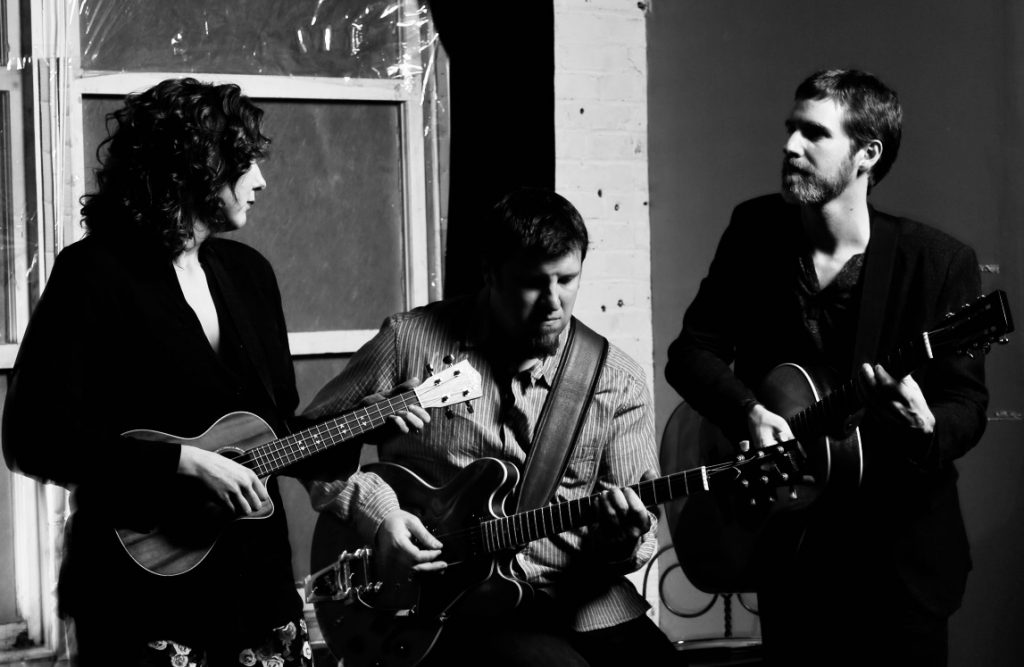
Sometimes, it’s the most mundane things that set the creative wheels in motion. In the case of “Sunflower”—Birds Over Arkansas’ first new music in five years—it was an insect laying waste to the New Haven, Conn., yard of band cofounders Scott Haskitt and Laura Hartshorn.
“Our yard has been very difficult to maintain, and it’s been riddled with grubs,” says Haskitt. “We were totally ripping up the grass and starting new, and that’s how the song started. I was handling a section of it myself, and I wasn’t really talking to anybody. That’s when words can take root—no pun intended.”
This was pre-pandemic, when such everyday crises were top of mind. After COVID hit, Haskitt, a new father, couldn’t bring himself to write much of anything—though he was able to flesh out “Sunflower.”
“I don’t know if it was the pandemic or the kid, but writing words became difficult,” he says. “There was a while where I felt guilty about doing something as celebratory as writing lyrics.”
Which leaves us with “Sunflower,” its genteel New England folk underpinnings roused by rustic whiffs of Appalachia and a light dusting of Texas twang. Coaxed along by the nimble mandolin and guitar work of John Mondick and the empathetic drumming of Ryan Berg (Strand Of Oaks, Project/Object), the song finds its emotional center in the effortless harmonies of Haskitt and Hartshorn. If Americana had an all-defining composite, “Sunflower” just might be it.
BOA released their debut LP, Behind The Lights, in 2014, garnering some positive press and touring with Carbon Leaf in 2016. But starting a family was a priority for Haskitt and Hartshorn. Hence the trickle of single releases since 2016. Throw a pandemic into the mix, and that formula is likely to hold—at least for the time being. “Because things can get so disconnected because we’re geographically disconnected, I think it makes sense to do singles,” says Haskitt.
Since forming in 2011, BOA has been battling geography almost from the start, with its key third rung living 200 miles away. “We make it work,” says Mondick, who’s based in the Philadelphia area. “For a while before the pandemic, I was traveling up there once a month. ‘Sunflower’ is a great example of how well we work long distance. I’d send Scott some mando parts, and he’d live with them for a little bit. There was just so much back and forth, and that long-distance thing was put to the test. This time, it worked.”
—Hobart Rowland







